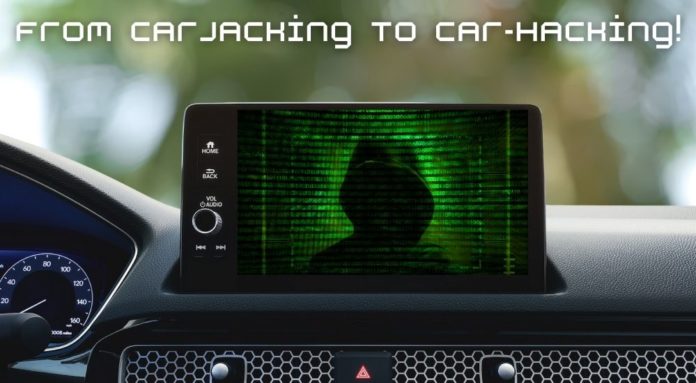The future is now, my friends, and it… sucks. Just when we thought we’d run out of new and exciting things to be worried about, we now have to consider the cybersecurity of our vehicles. It’s no longer enough to make sure our computers, phones, tablets, smart TVs, toasters, and refrigerators are safe online—now, our cars are becoming targets too. The good news is that this is still a growing problem that’s just started; the bad news is that this is a growing problem that is just getting started.
Cybersecurity for Your Car
The term “cybersecurity” generally refers to any measures or practices that need to be used in order to keep a device secure when it’s connected to the Internet. You see, going online gives you access to unprecedented amounts of information, human connectivity, and pornography. But it also means you become a target for other people looking to do some damage in one way or another. That might mean infecting your phone with a virus just for the “lulz,” but it can also mean utilizing your computer as part of a widespread attack on another system through a coordinated effort you don’t even realize is happening.
Recently, a group of cybersecurity experts took aim at a new target: the auto industry. Not the websites of car companies and dealerships, but the actual cars themselves. Since modern vehicles include connectivity features for their infotainment software and over-the-air updates for the cars themselves, they’re now online as part of the “Internet of things.” This means they can be found online by people who have nefarious plans in mind.
The experts found that they were able to remotely start nine different Honda models that were relatively close to them, including the Honda Civic. This isn’t an isolated incident by any means, nor is it a condemnation specifically of Honda. A hacker recently showed that he found a way to unlock and even remotely start Tesla vehicles. Fortunately, in both of these cases, the weaknesses were found by “white hat” hackers who try to find these things in order to warn others. But that does make one wonder what sorts of vulnerabilities have been found by “black hat” hackers with less altruistic goals in mind.
What Can You Do?
Unfortunately, when it comes to your car, you can’t just install firewall software or be careful about the links you click or emails you open. Cybersecurity for your vehicle is largely out of your hands and depends on the engineers at car companies to design their systems with strong protections against attacks or hacking. Your best bet is to stay informed about these sorts of things and choose vehicles from brands that are actively developing the best technology and responding to threats and vulnerabilities when they learn about them.
For example, when Tesla was first notified of the risk of someone else being able to remotely start their vehicles, the person who found this vulnerability says that Tesla told him they did not feel it was a significant risk. A fix to this problem would require hardware changes, which would be expensive. I’ll give you a few guesses as to why they didn’t want to actually fix anything.
How Will the Industry Respond?
My sources inside several car companies have told me that they’re aware of these issues and are acting quickly to fix things. One person, who wished to remain anonymous, told me, “As far as we see it, these are features, not bugs. Who doesn’t want someone else to start your car for you or even take control of steering? Sure, you might not get to where you want to go, but you’ll be able to sit back, relax, and let some teenager in Russia do all the work. Sounds great to me!”
At this time, none of the people I’ve spoken to seem all that worried about the situation. “No one knows how all this technology works,” I was told, “so no one really cares about these problems. Everyone wants everything connected, and that’s what we’re going to deliver. If you can’t start your car using your blender when making your breakfast smoothie, why even have one?” It’s hard to debate such airtight logic and a profoundly obtuse argument.
Editor’s Note: We would like to remind our readers that insecurity, property damage, and identity theft are the prices we all pay for convenience. If you don’t like it, then you can go back to starting your car by inserting the key, rather than pushing a button, like some kind of Neanderthal. The rest of us will enjoy having our cars started for us either when we approach with the key in our pocket or when someone else decides it’s time—that’s progress! Thank you.












